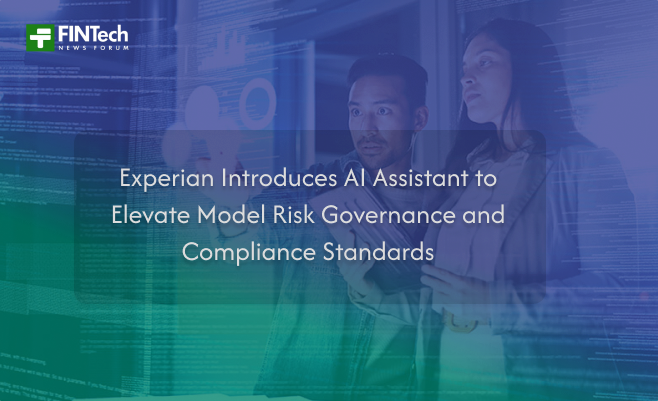
Global information services company Experian has announced the launch of a cutting-edge AI assistant specifically designed to enhance model risk governance, setting a new benchmark in how financial institutions manage regulatory compliance, model validation, and operational transparency.
This breakthrough innovation reflects Experian’s commitment to embedding responsible AI practices into core financial systems while addressing one of the industry’s most pressing challenges: the rising complexity and scrutiny of model risk management (MRM).
Meeting a Growing Regulatory and Operational Demand
Financial institutions today operate in an environment where models — including credit scoring, fraud detection, underwriting, and machine learning models — are integral to daily decision-making. But with the increasing reliance on automated systems, there is heightened regulatory scrutiny around model validation, bias mitigation, performance monitoring, and documentation standards.
The newly introduced AI assistant from Experian acts as an intelligent governance companion throughout the model lifecycle. It helps institutions ensure that their models meet internal risk standards as well as external regulatory expectations such as SR 11-7 in the U.S., EBA guidelines in Europe, and similar frameworks across APAC and Latin America.
“Model risk governance is no longer optional — it’s a strategic imperative,” said [Executive Name], [Title] at Experian. “Our AI assistant was developed to help compliance teams, risk managers, and data scientists manage model portfolios with greater accuracy, accountability, and efficiency.”
Core Capabilities of the AI Assistant
The AI assistant introduces a suite of features built to integrate seamlessly into an enterprise’s existing model risk governance framework, regardless of the modeling platform or data science stack in use. Key capabilities include:
- Automated Model Documentation: Generates standardized, regulator-ready documentation based on model metadata, code, input variables, and historical performance.
- Compliance Monitoring: Continuously scans models for compliance issues such as drift, data quality degradation, or divergence from governance policies.
- Explainability and Audit Trails: Provides natural language explanations of model logic and performance for auditors, regulators, and non-technical stakeholders.
- Bias and Fairness Detection: Identifies potential sources of algorithmic bias across demographic groups and suggests mitigation strategies aligned with fair lending and ethical AI standards.
- Version Control and Governance Workflow: Tracks all model changes, approvals, and validations within a secure audit trail, reducing manual oversight and enabling robust model lifecycle management.
These capabilities are accessible via an intuitive dashboard and natural language interface, allowing compliance teams to interact with the assistant in real time. The system also integrates with enterprise data catalogs, model inventory tools, and risk reporting systems.
Enabling Scalable, Transparent Model Oversight
In large institutions, managing hundreds or even thousands of models across departments is a significant operational burden. Experian’s AI assistant addresses this challenge by providing a centralized, scalable solution for model oversight. It can ingest models built in Python, R, SAS, or proprietary platforms and bring consistency to governance protocols enterprise-wide.
By reducing the reliance on manual reviews and static documentation, organizations can reallocate resources from repetitive compliance tasks to higher-order strategic work such as innovation, market analysis, and business expansion.
“We’re entering an era where AI must be governed as rigorously as it is deployed,” said a senior leader at Experian. “This assistant doesn’t just support compliance — it enhances the overall quality and integrity of modeling practices across the organization.”
Addressing AI and Model Governance Challenges Head-On
With regulators worldwide moving quickly to develop frameworks around AI accountability, model transparency, and consumer protections, Experian’s solution arrives at a pivotal time. The AI assistant supports internal risk committees, model validators, and audit functions by translating complex modeling outputs into clear, actionable insights.
It also helps institutions prepare for upcoming legislation and rule changes, including potential AI-specific disclosure mandates, which could require firms to explain the role of algorithms in credit and lending decisions.
The assistant’s explainability engine can simulate model decisions under various hypothetical inputs, making it easier to demonstrate fairness, consistency, and compliance with emerging ethical AI standards.
A Strategic Investment in the Future of Financial Modeling
Experian’s release of this AI assistant follows a broader industry trend of investing in model operations (“ModelOps”) and governance automation. As artificial intelligence continues to reshape lending, insurance, and risk analytics, maintaining trust and regulatory alignment has never been more critical.
By focusing on usability, integration, and enterprise-scale risk reduction, Experian is positioning itself not just as a credit bureau or data provider, but as a foundational player in the infrastructure of responsible AI and financial model governance.
This innovation is expected to appeal to banks, credit unions, fintechs, insurers, and regulatory agencies that are looking to modernize legacy risk systems while meeting the increasingly high bar for accountability.















